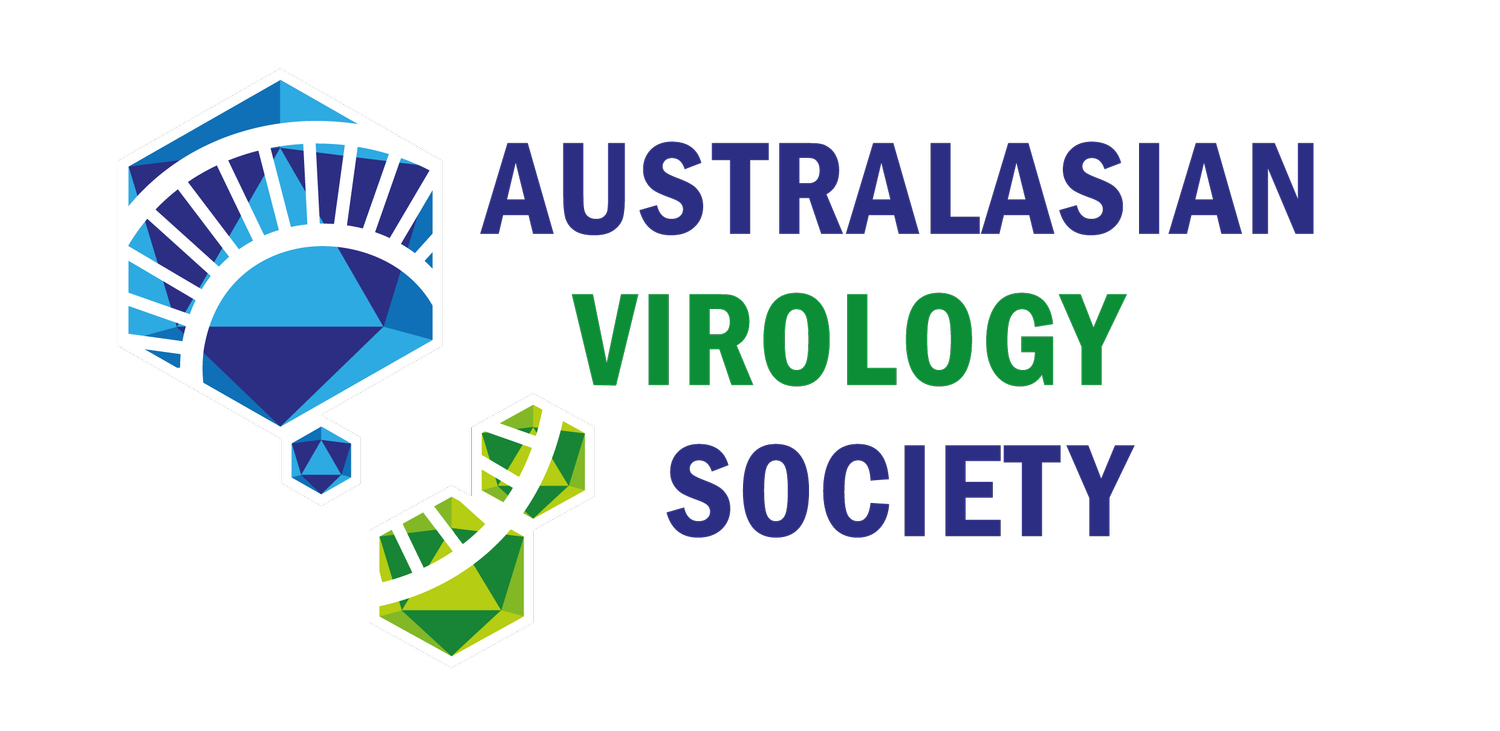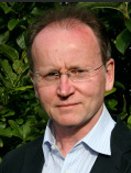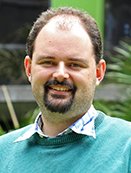Speakers
Jeremy Barr completed his PhD in microbiology at The University of Queensland in 2011. He then moved to San Diego, USA to complete a postdoctoral position working under the tutelage of Prof. Forest Rohwer at San Diego State University. While there he studied the interactions of bacteriophage with mucosal surfaces and proposed that bacteriophage adhere to mucus model which provides a non-host-derived layer of immunity to all metazoans. In 2016 he joined Monash University’s School of Biological Sciences as a lecturer and group leader,where his research group studies bacteriophages and their interactions with the human body.
Keynote Speakers
Dr Ana Fernandez-Sesma
Dr. Fernández-Sesma is a Professor of Microbiology at Icahn School of Medicine at Mount Sinai (ISMMS). Her group studies the modulation of innate immunity by viruses of human health interests, such as dengue (DENV), influenza (IAV), and others using primary human systems, such as dendritic cells, macrophages and tonsils. Dr. Fernández-Sesma obtained her MS in Biological Sciences from the University of Salamanca, Spain in 1990 and her PhD in Biomedical Sciences from The Graduate School of Biomedical Sciences at ISMMS in 1998. She currently participates in several multi-investigator projects that use OMICS technologies to study immune responses to viral infections. She is also very committed to graduate education and mentoring. She is the co-director of the Microbiology Main Training Area (MTA) of the Graduate School of Biomedical Sciences at ISMMS since 2010. She has co-authored over 75 publications and is on the editorial board of several journals, such as Journal of Virology, PLoS Pathogens and mSphere among others. She has participated in several study sections for the US National Institutes of Health (NIH), Centers for Disease Control (CDC) and the Department of Defense (DoD) and is currently a member of the Scientific Council of the Division of Infectious Diseases and Microbiology of the NIH/NIAID.
Dr. Fernández-Sesma’s laboratory has received funding from the NIH and the DoD; and for the past 4 years she has been ranked on the top 5 and the top female NIH-funded Investigator in Microbiology in the US by The Blue Ridge Institute for Medical Research (BRIMR).
She is currently the lead-investigator of the Dengue Human Immunology Project Consortium (DHIPC), which is one of the 9 NIH/NIAID-funded HIPC consortia that investigates the human innate immune responses to DENV in infected and DENV vaccinated individuals. Data from these studies is crucial to understand the early events that shape the innate and adaptive immune responses to DENV infections and vaccinations. The project has also been expanded to study human immune responses to chikungunya (CHIKV) and Zika (ZIKV) viruses.
Professor Benjamin tenOever, PhD
Prof. tenOever completed his postdoctoral training in biochemistry from Harvard after receiving his PhD in medicine from McGill. Thereafter, he began his own independent group at the Icahn School of Medicine at Mount Sinai in the Department of Microbiology and is presently an Arthur and Irene Fishberg Professor of Medicine and the Director of the Virus Engineering Center for Therapeutics and Research (VECToR). His research interests center on the biology of virus and host interactions.
Over the past ten years, the tenOever lab has used synthetic biology to alter the behavior of a wide variety of viruses in order to better understand both how they cause disease and how they might be harnessed for use in genetic therapies. Through the support of the National Institutes of Health and the Department of Defense, the tenOever lab has developed a molecular toolbox that enables everything from novel vaccine platforms to the capacity to transform viruses into tools for genetic engineering. As many of these designs rely on the exploitation of the cellular machinery, this work has also revealed novel insights into the mechanics by which cells can inhibit virus and how these activities have evolved over evolutionary time. Dr. tenOever’s research program has been recognized through awards from the Pew Biomedical Trust, Burroughs Wellcome Trust, the Fulbright Foundation and the President of the United States.
In addition to research, Dr. tenOever is also passionate about scientific communication. Often described as having an ‘infectious enthusiasm’, Dr. tenOever has demonstrated a longstanding commitment to teaching medical students, graduate students, and maintaining numerous community outreach programs including a high school-based virus discovery program. For more information, please see: http://bit.ly/tenOever
Invited Speakers
Dr Jeremy Barr
Lorena Brown is a Professor in the Department of Microbiology and Immunology at the University of Melbourne and heads a laboratory at the Doherty Institute dedicated to understanding and controlling influenza virus. Her work contributes to an NHMRC Program devoted to understanding why some individuals or populations experience particularly severe outcomes of influenza. Her translational research skills, learnt from high-level involvement in the Cooperative Research Centre for Vaccine Technology, have led to significant advances in the pursuit of better vaccines and therapeutics for influenza.Her group has also made major discoveries on how the virus evolves by swapping its genes and what may be the consequences of this for human disease during pandemics. Her international collaborative efforts in influenza have been recognised by the Russian Academy of Science and she is a member of the Global Institution for Collaborative Research and Education in the area of zoonosis control in Hokkaido University, Japan, where she holds the position of Distinguished Professor.
Professor Lorena Brown
Dr. Barbara S. Coulson (Honorary Principal Research Fellow, The University of Melbourne) researches the mechanisms underlying rotavirus cellular tropism, immunity and pathogenesis. She completed her PhD supervised by Ian H. Holmes, and her early postdoctoral research in collaboration with Ruth Bishop, the co-discoverers of human rotaviruses. She has been a Senior Research Fellow of the National Health and Medical Research Council of Australia (1991-2015) and a member of the Editorial Board of the Journal of Virology (2010-2016). She led in the development of monoclonal antibodies for rotavirus diagnosis and showed stool antirotaviral IgA is protective against reinfection in children. Her discovery that integrins are rotavirus receptors was an important milestone, followed by the demonstration of human rotavirus usage of the GM1 ganglioside and the A-type histo-blood group antigen as receptors. She was integral to the uncovering of the likely link between rotavirus and type 1 diabetes development in children. Her group has discovered how rotavirus modulates type 1 diabetes in mice, and elucidated rotavirus effects on innate immune responses. Her research supported the rationale for development of the rotavirus vaccines that are now widely utilized worldwide.
Dr Barbara S. Coulson
Ed is Professor of Medicine at the University of Auckland, New Zealand, Hepatologist and Deputy Director of the New Zealand Liver Unit at Auckland City Hospital. He chairs the Ministry of Health HepC Implementation committee. Ed is an investigator for many international clinical trials and has published almost 300 papers in peer-reviewed journals including The Lancet and The New England Journal of Medicine. In 2011, Professor Gane was awarded Member of the Order of New Zealand for Services to Medicine and in 2017 and was New Zealand Innovator of the Year for his work towards Hepatitis C elimination in New Zealand.
Professor Ed Gane
Associate Professor Allison Imrie is a teaching and research academic in the School of Biomedical Sciences (SBMS) within the Faculty of Health and Medical Sciences at the University of Western Australia. Previously she was an Assistant Professor in the Department of Public Health Sciences in the John A. Burns School of Medicine at the University of Hawaii at Manoa. She was a Consultant to the WHO Western Pacific Regional Office and completed her PhD studies in HIV and AIDS at the University of New South Wales and Centre for Immunology, St Vincent’s Hospital Sydney. Her current research interests focus on anti-viral immunity and viral genetic epidemiology of arthropod borne viruses; and viral discovery. Her current projects aim to characterise emerging and reemerging mosquito-borne viruses which are endemic to Australia or introduced by returning travellers, and to assess their viral and epidemic virulence. She collaborates with research partners in Indonesia, Papua New Guinea, Fiji, French Polynesia and the United States.
She serves as a Consultant for the WHO Prequalification of In Vitro Diagnostics Program (for viral diagnostic kits and reagents) and for the Australian National Public Health Laboratory Strategy. She has also served as a Consultant for Department of Foreign Affairs and Trade (DFAT) Centre for Health Security. She is a member of the International Committee on Taxonomy of Viruses (ICTV) Flavivirius Sub-Committee.
Associate Professor Allison Imrie
David leads the Structural Virology Group at the EMBL Australia Node for Single Molecule Science. Having completed a Bachelor of Science, majoring in biochemistry and chemistry, David undertook his PhD under the supervision of Professors Jill Trewhella and Mitchell Guss at the University of Sydney. During that time, David employed both crystallography and small-angle scattering to understand protein structure. He also authored the internationally accepted standards by which biological small-angle scattering data are now reported in publications. In 2012, the award of an NHMRC Early Career Fellowship enabled him to join the group of Leo James at the MRC Laboratory of Molecular Biology, Cambridge. Here, he studied the role played by the HIV capsid during the early stage of infection, revealing structural dynamics and interactions with the host at a molecular level not previously seen. Since returning to Australia, David leads an independent research team focused on understanding the molecular details of host-pathogen interactions through the use of crystallographic, single molecule fluorescence, and cryo-electron microscopy methods.
Dr David Jacques
Associate Professor Karyn Johnson gained her PhD in Molecular Virology at the Australian National University and has been at the University of Queensland since 2004. Her research interests encompass the interaction of viruses with their insect hosts. Her research group primarily uses the Drosophila model to tease apart the contribution of each partner to the interaction by controlling the genetics of both the host and the virus. Recent research has focused on Wolbachia-mediated antiviral protection and the role of miRNAs in the outcome of virus infection.
Associate Professor Karyn Johnson
Dr Khromykhis an NHMRC Senior Research Fellow and the Deputy Director (Virology) of the Australian Infectious Diseases Research Centre at the University of Queensland. He completed his PhD in Molecular Virology in 1990 at the State Centre for Virology and Biotechnology “Vector” on the development of vaccine against tick-borne encephalitis virus. He then obtained postdoctoral trainings at the University of Ottawa, Canada and then at the Sir Albert Sakzewski Virus Research Centre (SASVRC) in Brisbane. He established his independent laboratory at the SASVRC in 2001 and then moved to the University of Queensland where he took an appointment with the School of Chemistry and Molecular Biosciences. One of the main focuses of Dr Khromykh’s research has been the development and applications of advanced molecular techniques, in particularly, inventive approaches to generate infectious flavivrius cDNAs, chimeric and mutant viruses, and large virus libraries to address fundamental questions in flavivirus replication and pathogenesis and to develop effective vaccine candidates. Other research interests include viral evasion of host innate immune response, viral and host non-coding RNAs, and replicon-based vaccine and cancer therapy vectors. Dr Khromykh has published 131 articles cited >9800 times with recent publications in Nature Microbiology and Nature Communications.
Dr Alex Khromykh
Professor Damian Purcell is head of the molecular virology laboratory at The University of Melbourne and theme leader for Viral Infectious Diseases at The Peter Doherty Institute for Infection and Immunity. After receiving a PhD from the University of Melbourne in 1987 he was a CJ Martin traveling fellow with Dr. Malcolm Martin at the Laboratory for Molecular Microbiology of the NIAID, at the NIH in Bethesda, Maryland. He returned to Melbourne’s Burnet Institute in 1995 before moving to a tenured teaching and research position at The University of Melbourne in 2001. He studies RNA-mediated control of HIV and HTLV-1 replication during productive and the latency phase of infection. He uses insights into the molecular interplay of viral and host factors during viral infection and the innate and adaptive immune responses to viral infection to develop new latency-breaking drugs, vaccines and biomedical interventions.He is co-Director of the Global Virus Network (GVN) in Australia, the Executive Committee and Past President of the Australasian Virology Society, and Executive Committee of the Australian Center for HIV and Hepatitis Virology. He chairs the Australasian Society for HIV, Hepatitis and Sexual health Medicine (ASHM) HTLV-1 working group and is on the Steering Committee of the Federal Ministerial taskforce on HTLV. He is the Australasian Governing councilor of the International Retrovirology Association and Chair for the 20th International HTLV Conference in Melbourne in 2021.
Professor Damian Purcell
Kate Stacey’s research interest is pathogen receptors of the innate immune system, including toll-like receptors (TLR) and inflammasome proteins. She pioneered work on macrophage activation by foreign (“CpG”) DNA, recognised via TLR9, and more recently focussed on inflammasome activation by AIM2 recognition of DNA in the cytosol. Her group has shown that the inflammasome is a novel platform for activation of caspase-8. She also investigates innate immune responses in viral infection, and is currently investigating the importance of TLR4 recognition of dengue virus NS1 protein in disease pathology.
Associate Professor Kate Stacey
Dr Tanja Strive is a Principal Research Scientist within CSIRO Health and Biosecurity as well as the Biocontrol Innovation Domain Leader within the Australian Centre for Invasive Species Solutions (CISS). A molecular virologist by training, she joined CSIRO in 2002. She has since worked on a series of projects investigating lethal and non-lethal, and both GM and non-GM, biocontrol options for a range of feral animal species. During the past ten years Tanja has driven a combination of applied and basic fundamental research projects focussing on improving our understanding of the biology, evolution, epidemiology and interactions of different caliciviruses in Australian wild rabbits, and the implications and possible applications for biological control and landscape scale management of rabbit impacts.
Dr Tanja Strive
Peter Waterhouse is a Laureate Fellow and Professor of Molecular Genetics at QUT. He began his plant virology career at CSIRO where he determined the molecular lifestyles of the luteovirus, polerovirus, oryzavirus and nanovirus groups. He is internationally known for his research discovery on plant RNA interference (RNAi) and was the creator of the hairpin RNAi gene silencing strategy. His expertise ranges from viral gene regulation to plant genomics, with his current work deciphering how plant genes work in harmony within a genome, and how viruses and foreign genes are perceived and neutralized. He is a past recipient of the Victor Chang Medal, the CSIRO Chairman’s Prize, a Federation Fellowship and the Prime Minister’s Science Prize.
Professor Peter Waterhouse














